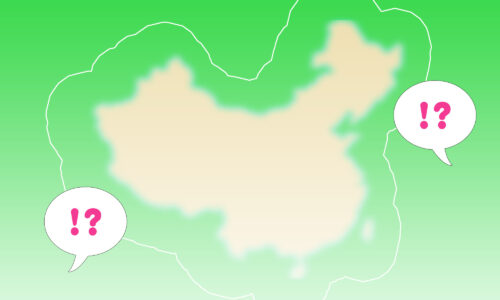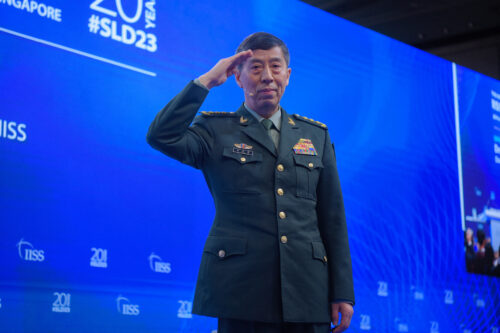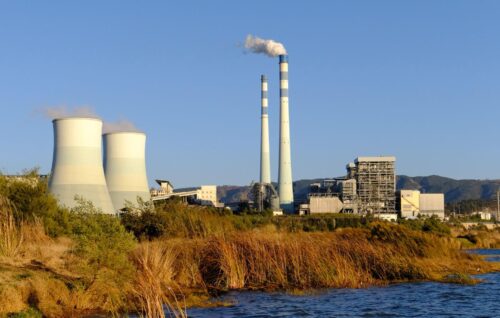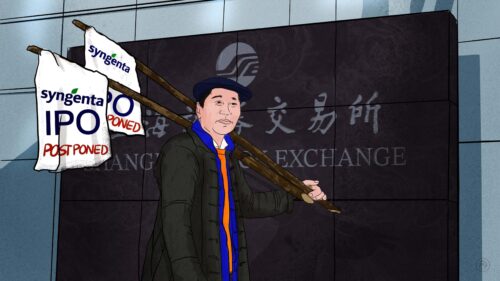Prostate cancer, agriculture reform, and China returns drone to U.S. Navy
Top China news for December 20, 2016. Get this daily digest delivered to your inbox by signing up at supchina.com/subscribe.

TODAY’S TOP STORIES
Prostate and breast cancer on the rise
The incidence of prostate cancer among Chinese men is “rising by 12 percent annually,” according to China Daily. An additional problem is late diagnosis, since “nearly 70 percent of patients are…diagnosed only at the end stages of the disease.” Yesterday, Shanghai Daily reported that the incidence of breast cancer is increasing annually in China’s big cities by 2-3 percent. According to the editor of the New England Journal of Medicine, interviewed recently by The China Project, noncommunicable diseases are a major and rising public health threat in China; he pointed to strokes and diabetes as serious issues.
Fixing China’s agriculture sector
On November 3 this year, the government promulgated new rural land right rules intended to allow the Communist Party to maintain the collective land ownership system while transitioning to modern industrial farming (see this The China Project article for more). Today’s Chinese central state media is dominated by an article on the Central Rural Work Conference (in Chinese here), signaling the government’s determination to reform the country’s agricultural system and ameliorate what are officially known as the “three countryside problems” — the issues facing the management of rural areas, the poverty of many peasant farmers, and the modernization of China’s agriculture. As Xinhua News Agency puts it in a short English summary, the government intends to “promote intensive agricultural development to help reduce poverty and facilitate urbanization to benefit ordinary rural households.”
China returns an underwater drone to the U.S. Navy
The New York Times reports that a Chinese vessel has returned the submersible drone that the Chinese Navy had seized “to a United States Navy ship in international waters off the Philippines, near where it was taken on Thursday,” according to a spokesman for the U.S. Department of Defense. He described the incident as “inconsistent with both international law and standards of professionalism for conduct between navies at sea.” There’s more on the seizure of the drone in yesterday’s The China Project news roundup.
On The China Project: The top 10 Chinese buzzwords of 2016
Today we present a translation of a list of the most popular new words and phrases on the Chinese internet and in the media during the last year.
More China news worth following is summarized below, with the more important stories at the top of each section.
BUSINESS AND TECHNOLOGY:
-
- Companies face delays getting cash out of China / WSJ
New rules intended to slow capital outflows from China are creating headaches for foreign firms operating in the country, and analysts say the restrictions and delays could cause multinationals to “rethink future investments.” - China’s dodgy data: A rational response to a skewed system, report says / WSJ
Chinese companies “hide, misrepresent or otherwise misconstrue financial information frequently and are responding rationally to incentives built into China’s unique state-run system,” said an expert in Chinese financial data. - China talks the talk on property curbs, but can it walk the walk? / Bloomberg
Recent statements that China must curb speculation in the property market echo “similar vows in recent years that pushed prices down temporarily before they surged anew to fresh highs as policy eased again to boost slowing economic growth.” - Opinion: China’s central bank governor battles falling yuan, cooling property market / Australian Financial Review
“The challenge of cooling down an overheated property and bond market while side-stepping an economic hard landing would test the abilities of any central banker,” writes Karen Maley. “To do this at a time when the currency is also under pressure and your country risks being labeled a ‘currency manipulator’ by the United States will not only require consummate skill, but also a certain degree of good fortune.” - China box office flatlines in 2016 / Hollywood Reporter
After surging 48 percent last year, China’s 2016 box office is projected to grow by just 4.5 percent. Patrick Brzeski reports that industry analysts cite a number of factors for the decline, including “weaker local films, a crackdown on box-office fraud, cutbacks in last year’s generous ticket subsidies from online platforms trying to build market share, overall weakness in the Chinese economy and increased consumer discernment among China’s new moviegoers.” - Why China is dominating the solar industry / Scientific American
“Between 2008 and 2013, China’s fledgling solar-electric panel industry dropped world prices by 80 percent, a stunning achievement in a fiercely competitive high-tech market,” notes John Fialka. China is now “the globe’s leader in what may soon be the world’s largest renewable energy source.” - Jeep’s latest push into China proves a tough slog / WSJ
“China’s car market…is saturated after tens of billions of dollars of investment by foreign car makers in the last decade. Sales volume is still growing, but largely thanks to a government tax break on vehicles with smaller engines slated to be reduced in 2017.” - If the U.S. won’t pay its teachers, China will / Bloomberg
VIPKid, a startup launched by a high-school dropout from China, pairs young Chinese students with foreign tutors who teach them online. It is seeing huge growth as Chinese demand for high-quality education soars. - Snap Inc. looks to land in China: Report / ZDNet
“Camera company Snap Inc., which owns popular mobile app Snapchat, is reportedly setting up an R&D team in China, despite the app remaining inaccessible in the country due to government bans.”
- Companies face delays getting cash out of China / WSJ
POLITICS AND CURRENT AFFAIRS:
-
- Opinion: China throws out South China Sea rule book / WSJ
“China has crossed a new threshold,” writes Andrew Browne. “It once found it necessary to justify its assertive actions in the South China Sea within a broad framework of legality — however flimsy, contrived or contested its formulation of law appeared to the U.S. and its allies…. This time it hardly bothered with a legal rationale.” - UN says 15,000 flee into China as Myanmar’s army battles ethnic rebels / Reuters
“In Beijing, Chinese foreign ministry spokeswoman Hua Chunying said she did not immediately have any details about refugee numbers, but repeated a call for talks to resolve the fighting and ensure peace and stability on the border.” - China says will not change position on Nobel Peace Prize / Reuters
The resumption of diplomatic ties between Norway and China, which were broken off after the Nobel Peace Prize was awarded to jailed Chinese activist Liu Xiaobo in 2010, will not affect China’s official position on the award. Foreign ministry spokesperson Hua Chunying stated that previously, the prize was “wrongly awarded…to criminals who attempted to split China, sabotage national unity and subvert the state power, for the purpose of achieving their political agenda.” She added, “The Chinese side is unequivocally and resolutely opposed to that. This position is subject to no change.” - China offers $14 million arms package to the Philippines: Manila’s defense minister / Reuters
“China has offered to provide $14 million worth of small arms and fast boats to the Philippines for free, aiding President Rodrigo Duterte’s war on drugs and fighting terrorism,” Manuel Mogato reports. “Beijing has also made available a $500 million long-term soft loan for other equipment.” - Opinion: China and the fear of failure / The Diplomat
In Chinese politics, “the fear of failure, and the consequences when failure happens, as it so often must, are very strong,” writes Kerry Brown. “This is not a recent phenomenon, but one that lies deep in the cultural roots of China itself.”
- Opinion: China throws out South China Sea rule book / WSJ
SOCIETY AND CULTURE:
-
- People in Beijing are trapped in hell as smog restrictions shut down highways and airports / Quartz
Flight cancellations and highway closures accompanied the fourth day of a severe pollution red alert in China’s capital. “Even if you want to leave Beijing you won’t be able to see the door (in the smog)!” wrote one netizen on social media. - Opinion: Are China’s schools failing? / Bloomberg
“China’s much-lauded education system remains riven by inequality, with far-reaching consequences for schools, students and, ultimately, the economy,” writes Adam Minter. The solution? Minter recommends starting with a repeal of residency permit laws that restrict access to education, investment in early childhood education and a reduction in school fees for rural children. - A history of Chinese photobooks / Hyperallergic
The Chinese Photobook: From the 1900s to the Present, which was recently reprinted in a midsize edition, offers a historical tour of an educational and documentary medium. “Many of the titles were not originally conceived of as artistic expressions,” Claire Voon writes, “but they present absorbing photographs and suggest how images have functioned over the years as a government tool.”
- People in Beijing are trapped in hell as smog restrictions shut down highways and airports / Quartz





